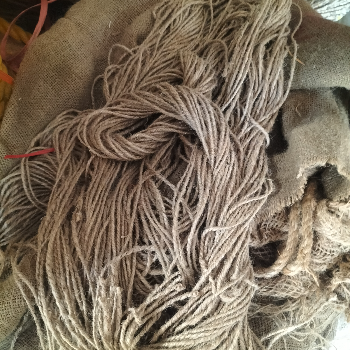In the bustling city of Jaipur, Ramesh Mehta ran a small but thriving business selling handmade crafts. Ramesh was passionate about his work, but he faced a significant challenge that threatened to unravel his aspirations—packaging. Every day, he struggled with synthetic twines that were not only costly but also environmentally harmful. His customers, mostly tourists, often asked for eco-friendly packaging options, and Ramesh knew he had to make a change to keep up with the growing demand for sustainable products.
Ramesh’s story reflects the challenges faced by many small business owners in India. As consumers become more conscious of their environmental impact, businesses must adapt or risk being left behind. For Ramesh, the solution came in the form of jute sutli—a natural, biodegradable twine that not only solved his packaging woes but also aligned with his values of sustainability.
Jute sutli, derived from the jute plant, is a versatile and durable material used widely across India for packaging, gardening, and various craft projects. Its eco-friendly nature makes it an ideal choice for businesses looking to reduce their carbon footprint. The switch to jute sutli was a game-changer for Ramesh. Not only did it enhance the appeal of his products, but it also resonated with his customers who appreciated the effort to provide sustainable packaging.
The transformation was remarkable. Customers who had previously hesitated to purchase his crafts due to packaging concerns were now eager to buy, knowing their purchases supported an eco-friendly initiative. Ramesh’s sales increased, and his brand reputation soared. The jute sutli became more than just a packaging material; it was a symbol of his commitment to the environment and to his customers.
But the benefits of jute sutli didn’t stop at customer satisfaction. It also had practical advantages for Ramesh’s business operations. Unlike synthetic twines that often snapped under pressure, jute sutli proved to be incredibly strong and reliable. This durability meant fewer packaging mishaps and reduced costs in the long run. Moreover, the natural texture of jute added an aesthetic appeal to his crafts, enhancing their overall value.
Ramesh’s story is not unique. Across India, many small business owners are discovering the benefits of jute sutli. Take Priya Sharma, for example, who runs a successful organic tea business in Darjeeling. Like Ramesh, Priya faced similar challenges with packaging. She found that using jute sutli not only improved her brand’s image but also attracted environmentally conscious customers from around the world. Priya’s tea, wrapped in jute sutli, became a favorite among tourists seeking authentic, sustainable souvenirs.
For business owners like Ramesh and Priya, jute sutli is more than just a product; it’s a solution to a significant problem. It addresses both practical needs—such as strength and durability—and emotional needs, by aligning with the growing consumer demand for sustainability. The shift to jute sutli represents a commitment to the planet, enhancing brand loyalty and customer satisfaction.
In conclusion, the story of Ramesh and Priya illustrates the transformative power of jute sutli. It is not just a material but a catalyst for change, enabling small businesses to thrive in an increasingly eco-conscious market. For those facing similar packaging challenges, the choice is clear. Jute sutli offers a sustainable, practical, and appealing solution that benefits businesses, customers, and the planet alike.
If you’re a small business owner struggling with packaging challenges, consider making the switch to jute sutli. Embrace the change, and like Ramesh, watch your business and customer satisfaction grow. Let jute sutli be the thread that weaves your success story.
Visit Vyaparify Site:
https://id.vyaparify.com/chhajju-ram-arjun-kumar 
